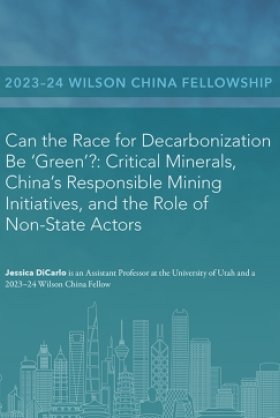Can the Race for Decarbonization Be 'Green'?


This report examines China’s evolving role in promoting responsible critical mineral extraction within the context of the global energy transition. It focuses on the pivotal role of non-state actors in shaping environmental, social, and governance (ESG) standards and corporate social responsibility (CSR) practices in the mining sector through the case of the China Chamber of Commerce of Metals, Minerals & Chemicals Importers & Exporters (CCCMC). CCCMC emerges as a key player in developing and implementing ESG guidelines, bridging government policies, industry interests, and international standards. By analyzing CCCMC’s evolution, international engagements, and influence on policy and ground-level practices, this report provides insights into China’s approach to responsible mining and its implications for global mineral supply chains. It also challenges conventional portrayals of Western and Chinese ESG standards as disparate, demonstrating their increasing convergence and co-evolution. It highlights the complexities Chinese firms face in implementing these standards, noting distinct challenges for upstream and downstream companies across different minerals. The findings suggest that China’s efforts in this domain serve multiple purposes: securing critical mineral supplies, mitigating reputational risks, and perhaps increasingly projecting green soft power. It suggests the need for a more granular understanding of and increased international cooperation in addressing the environmental and social challenges of the global energy transition.
Author

Assistant Professor, University of Utah

Kissinger Institute on China and the United States
The Kissinger Institute works to ensure that China policy serves American long-term interests and is founded in understanding of historical and cultural factors in bilateral relations and in accurate assessment of the aspirations of China’s government and people. Read more

Explore More
Browse Insights & Analysis
La esencia de la infraestructura global: perspectivas del líder de la industria Matt Harris

Debunking the Patient Capital Myth: The Reality of China’s Resource-Backed Lending Practices

